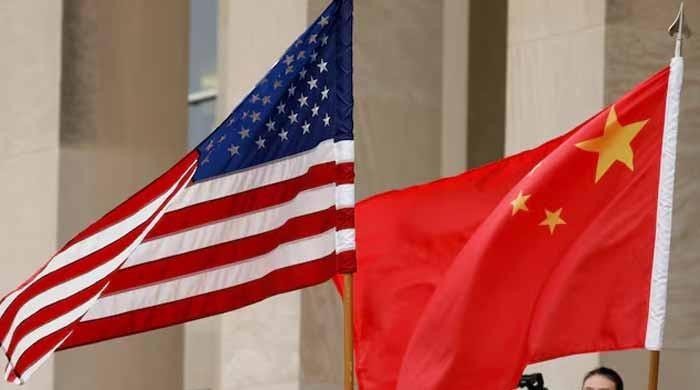- The suspension covers exports of gallium, germanium and antimony.
- The suspension of the export ban will remain in effect until November 27, 2026.
- Ban targeted metals used in semiconductors and defense technologies.
BEIJING: China has suspended an export ban to the United States that targeted gallium, germanium and antimony, metals essential to modern technology including semiconductors, Beijing’s Commerce Ministry said on Sunday.
The restrictions prohibit the export of “dual-use” goods, materials that can have both civilian and military applications.
Imposed in December 2024, the ban will now be suspended until November 27, 2026, Beijing’s Ministry of Commerce said in a statement.
The announcement comes after leaders Xi Jinping and Donald Trump met Oct. 30 in South Korea and agreed to roll back some punitive measures imposed during their tariff escalation.
At one point, tariffs on both sides reached prohibitive triple-digit levels, hampering trade between the world’s two largest economies and blocking global supply chains.
Throughout the trade war, China has sought to exploit its hold on critical minerals that underpin everything from smartphones to advanced military technology.
China confirms resumption of Nexperia chip exports
Separately, the European Commission announced on Saturday that Chinese authorities had confirmed a partial resumption of Nexperia chips, easing a blockage that has alarmed automakers.
The conflict erupted in September when the Dutch government effectively took control of Nexperia, which is based in the Netherlands but whose parent company is the Chinese company Wingtech.
China responded by banning the re-export of the company’s chips, triggering warnings from automakers about production halts because the components are critical to in-car electronics.
But Beijing announced over the weekend that it would exempt some chips from the export ban, part of a trade deal struck between President Xi Jinping and his U.S. counterpart Donald Trump.
EU Trade Commissioner Maros Sefcovic said on
Exports will be allowed provided that the chips are only intended for “civilian use”, Sefcovic added, saying the measure would take effect “immediately”.
Discussions are continuing with China to find a “sustainable, stable and predictable framework that guarantees the full restoration of semiconductor flows,” he added.
The German Aumovio, a major automotive supplier, had already announced on Friday that it had received authorization from the Chinese authorities to resume exports of Nexperia chips.
The chips are manufactured in Europe but then sent to China for finishing, before being re-exported to customers in Europe and other markets.
Volkswagen, Europe’s largest carmaker, had warned of production shutdowns if the crisis continues, while smaller companies prepare to reduce working hours.
The Netherlands cited national security concerns when it decided to take control of Nexperia, accusing the company’s CEO of mismanagement.




